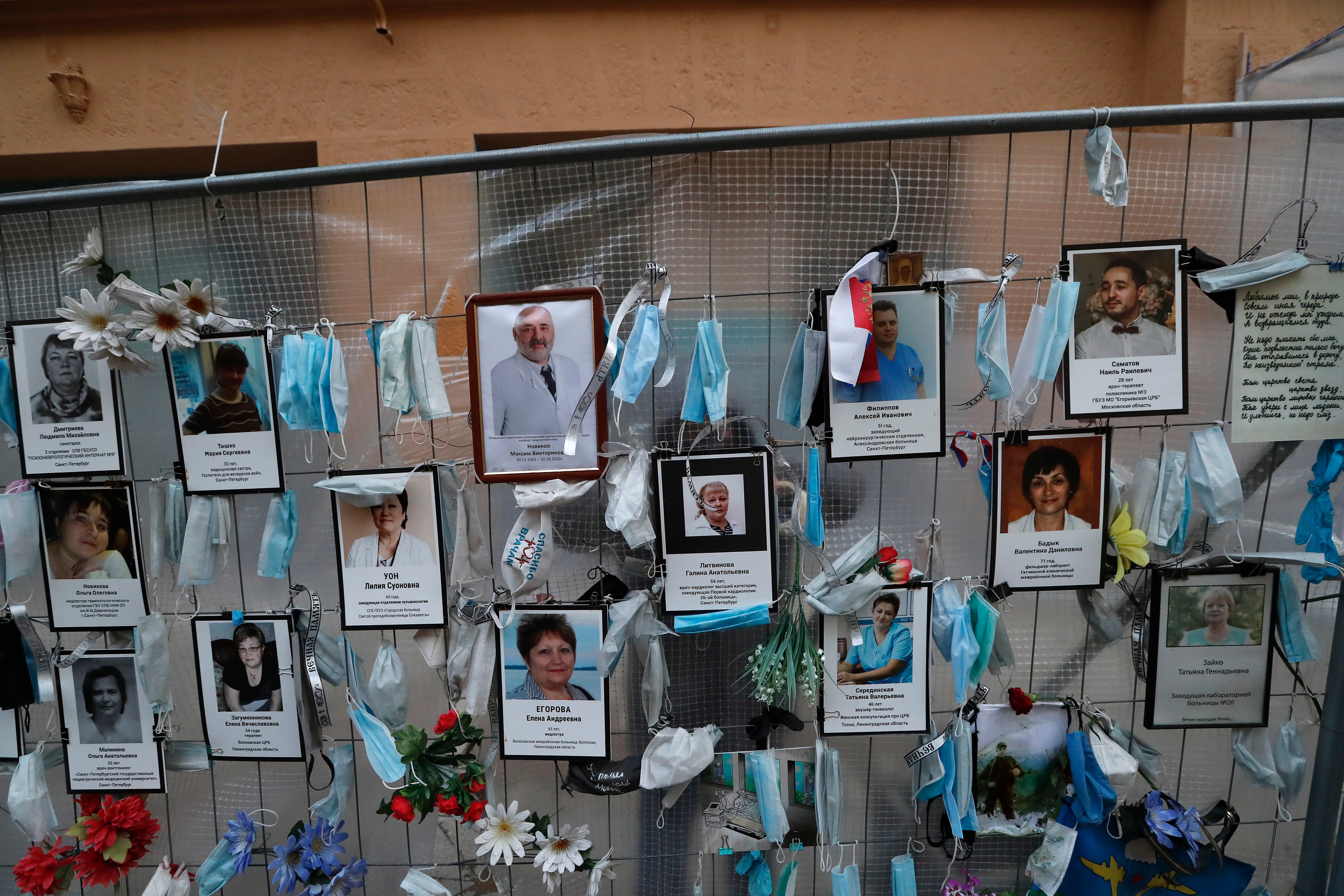Overflowing morgues and missing medicines: Russia’s regions overrun by Covid second wave
Wife of doctor who died from coronavirus believes hospital managers hid positive diagnosis to keep the ward running. By Oliver Carroll in Moscow


Intensive care doctor Yury Kochetkov knew the odds were against him when he presented himself for a test in early October.
All the ICU nurses in the hospital in Siberian city of Barnaul were already self-isolating, forcing him and the other remaining doctors to work all hours. Kochetkov was also displaying the tell-tale signs. It would only be a matter of time before would be asked to go home, he assumed.
But the call never came.
Nine days later, while making a routine check for a patient on the hospital databases, Kochetkov caught his name on the Covid-19 patient lists. Already weak with fever, he headed home to self-isolate. Two weeks later, he was found dead in his apartment by his wife.
Yelena Kochetkova said her husband suspected hospital managers hid his diagnosis to keep the unit running.
“By the end, he clearly knew that nothing would save him,” she told local media.
“He had put money aside in a glass jar. He was preparing for eventualities. He knew he was going to die.”
As elsewhere around the globe, Russia is struggling with the effects of a second peak of the novel coronavirus. In the capital, a skeleton health system is arguably coping reasonably well. But in faraway regions, infections are overwhelming doctors, overfilling wards, overflowing morgues, and leaving chemists without essential medicines.
On Monday, authorities reported a record 20,778 new cases overnight and at least 303 deaths.
In Moscow, a huge ice rink was converted to a field hospital, one of dozens nationwide. Meanwhile Buryatia, the impoverished Siberian region on the west bank of Lake Baikal, became the first region to announce a second lockdown.
The local governor Alexei Tsydenov said the region had no choice but to shut down all non-essential activities. “Doctors are working at the extremes, getting through by clenching their teeth,” he said.
But even with numbers rising elsewhere, few regional leaders seem set to follow in shutting down economic activity – and suffering the revenue hit in taxes and other revenues, illicit and otherwise.
According to Dmitry Seryogin, a paramedic in Oryol in central Russia, the lack of a second lockdown had made the pandemic “two to three times worse” than it was in spring.
A vicious chain was already in operation locally, he said: pneumonia was running at record levels; ambulance crews were responding to calls sometimes only 15 hours later; patients were preferring to wait for a few hours in local polyclinics instead; those clinics were becoming perfect hosts for more infections; more infections meant panic buying of essential antibiotics; shortages of such medicines were impacting outcomes.
According to official figures, 171 people have died of coronavirus in the Oryol region since the start of the pandemic, with 14,000 people infected.
But Seryogin insisted this is a distorted picture: “People are only being tested if they are verified contacts of a patient with confirmed Covid-19,” he said. “And people aren't being hospitalised unless they have been tested. Once again it’s a vicious circle.”
At the start of the pandemic, the Kremlin cannily delegated major coronavirus decisions to the regions, aware of the problems that were likely coming down the line. Now regional authorities are doing their best to conceal those problems from the rest of the world. Aside from the underreporting of numbers, many hospitals have implemented smartphone bans.
But disturbing videos shared on social media appear to show morgues and hospital wards overflowing with bodies. Medical workers say authorities are trying to censor the footage.
In one video, black body bags are piled up on top of one another, spilling out onto the corridors.
“There are corpses everywhere, you have to walk over their heads to get through”, says the person recording. The Independent is unable to verify the footage.
In the Siberian city of Abakan, paramedic Polina Panina shot to national fame with a 8 November video showing her pleading with hospital managers to admit a 90-year-old patient. It had been the tenth refusal of her shift that day, and the young medic burst out in tears. “I can’t take her home to die,” Panina said. “She survived the Second World War!”
Panina wasn’t thanked for her dedication. According to the paramedic’s sister, regional health minister Viktor Shevchenko arrived at the station the next day to give the crew a dressing down. “People like you were shot during the war!” he is then alleged to have told Polina, before making threats to fire those publishing such videos. Minister Shevchenko denied making the remarks. Panina declined the opportunity to talk to The Independent.
Tensions seem likely to increase as the pandemic moves through Russia’s most vulnerable regions. For some, like Oryol’s Seryogin, time is running out to break the cycles of exponential growth.
In a press conference on Monday, Kremlin spokesman Dmitry Peskov acknowledged the growing problem but insisted there were no need to increase the number of Buryatia-style lockdowns nationwide.
“The dynamics of the epidemic differ across regions,” he said. “We can't have a single plan.”


Join our commenting forum
Join thought-provoking conversations, follow other Independent readers and see their replies
Comments